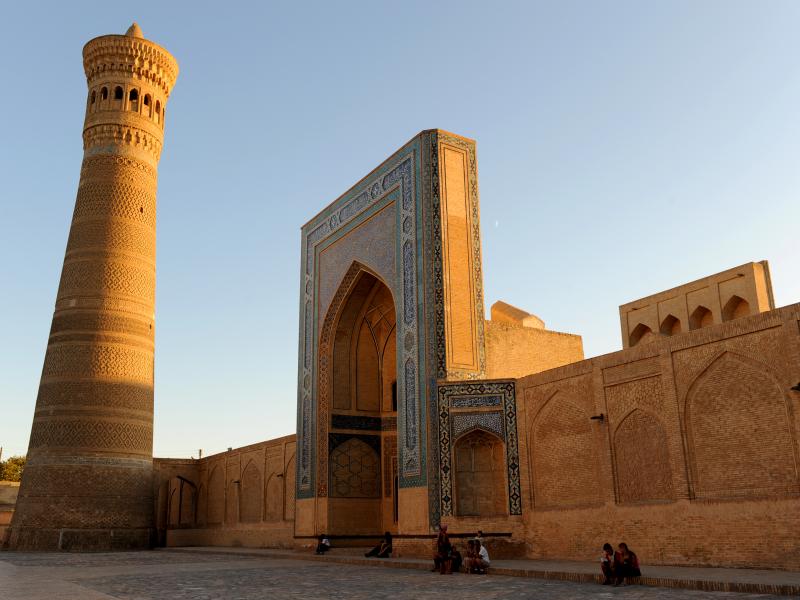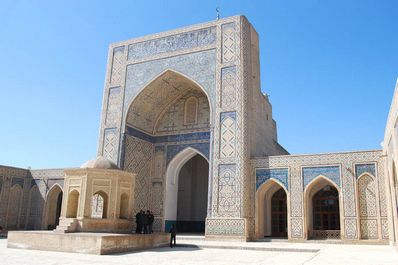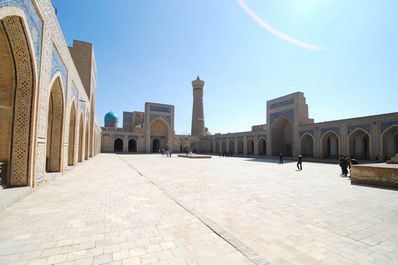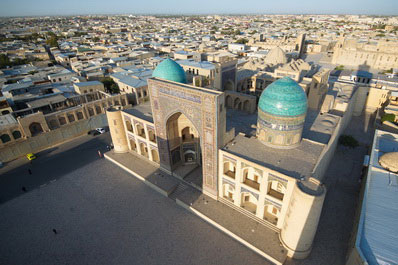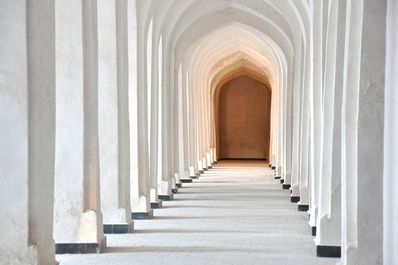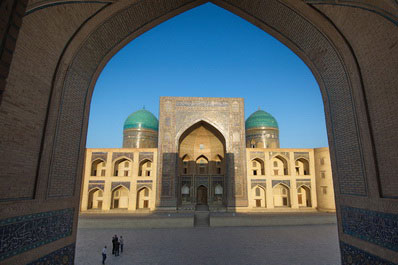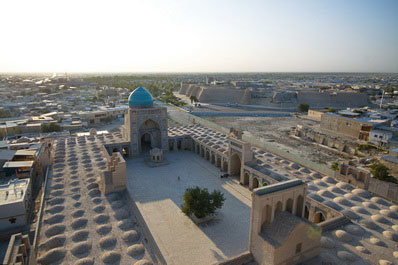The Kalyan Mosque
The Kalyan Mosque is one of the outstanding monuments of Bukhara, dating back to the fifteenth century. According to data from archaeological excavations, the original Karakhanid Djuma Mosque was destroyed by fire and dismantled, apparently at the time of the Mongolian invasion. Some time later, it was rebuilt, but this reconstructed mosque did not remain long. A new mosque was built in the fifteenth century, at the time of the Sheybanids, according to written sources of the time.
Under Temur, the construction of monumental buildings was concentrated in Samarkand and Shahrisabz. However, under Ulughbek, the powerful clergy of Bukhara initiated the construction of a new Djuma Mosque on the site of the old one. Its dimensions are just slightly smaller than those of the Bibi-Khanum, Temur's congregational mosque in Samarkand. However, Bukhara's Djuma Mosque is not decorated as elaborately as the Bibi-Khanum.
The layout of the Djuma Mosque (named the Kalyan Mosque) is traditional: a rectangular courtyard with a tall and large maksura room on the west side. Each of the courtyard axes has a large ayvan and the perimeter of the courtyard is built up with pillar-domed galleries (there are 208 pillars and 288 domes). The maksura is square and has deeply recessed niches on the transverse axis and a mihhrab on the main axis. Slabbing is typical for the early fifteenth century,-an octahedron of arched pendentives supports a vaulted inner dome and is capped by a spherical blue outer dome upon a drum. This structure still dominates the skyline of Bukhara.
Construction of the mosque was completed in 1514 under the direction of Ubaidulla-khan. new elements were a main facade with peshtok in the centre of it, gul-dasta (towers) and arches on the walls. The decor of the mosque is constrained, composed primarily of glazed tiles and bricks that form knots, and is concentrated mainly on the main facade and the mihrab. Interestingly, however, beyond this facade archaeological research has revealed an earlier decor, composed of six sided tiles and a mosaic border. The earlier decor is marked with the name of the master who made it, Bayazid Purani, and dates back to the fifteenth century.
Source: http://www.advantour.com/uzbekistan/bukhara/kalyan-mosque.htm
